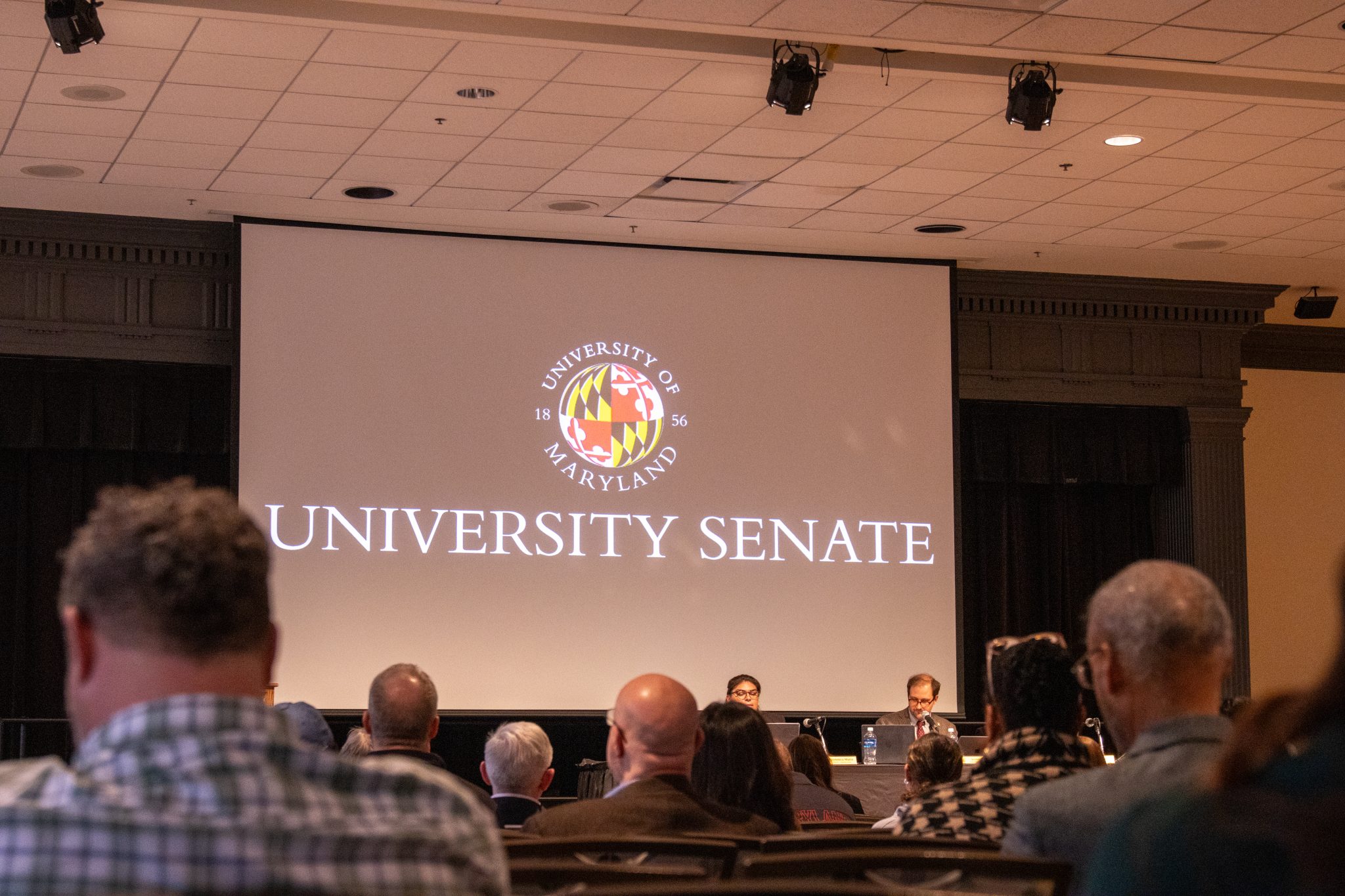The University of Maryland Senate passed a resolution Thursday in support of joining a “mutual defense compact” between faculty senates from Big Ten universities in response to President Donald Trump’s ongoing attacks on higher education.
Rutgers University’s faculty senate pioneered the initiative, passing a resolution on March 28 that calls on the 18 universities in the Big Ten Academic Alliance to form a coalition to protect their institutional autonomy, research efforts and freedom of speech from federal government influence.
Earlier this month, this university’s senate formed a special subcommittee to review peer institutions’ compact resolutions and consider whether or not to adopt a similar one, according to senate chair Jordan Sly.
The subcommittee held its first meeting on Wednesday and voted to present a resolution before the full senate for consideration on Thursday, Sly said during Thursday’s senate meeting .
After some debate, the senate voted 93-17-5 in favor of adopting the non-binding, advisory defense-pact resolution authored by faculty senator and engineering professor Peter Sunderland.
“If we and other universities adopt a strategy of keeping our heads low, then our hesitation and fear will become the Trump administration’s most reliable weapon,” said faculty senator Christopher Jarzynski, a representative from the chemistry and biochemistry department. “As long as it is easy for [the administration] to proceed, they will push harder.”
The senate’s resolution comes amid ongoing attempts by the Trump administration to exert control over U.S. higher education, including cutting funding for research grants and aid programs, revoking visas from international students and targeting diversity, equity and inclusion policies, according to the Associated Press.
[Federal government revokes visas from 7 people at UMD]
Although Trump has so far mainly targeted private Ivy League institutions, many public schools, including this university, have felt pressure, the Associated Press reported.
The federal government has revoked student visas from seven people at this university as of April 23, The Diamondback reported. About $12 million of this university’s research grants and contract funding have been impacted by cuts to federal spending, The Diamondback reported on Wednesday.
Rutgers’ original resolution cites these continuing “legal, financial and political incursion[s]” as grounds for forming a defense alliance between Big Ten schools.
The faculty senate alliance would require all participating universities to contribute to a shared defense fund “used to provide immediate and strategic support to any member institution under direct political or legal infringement,” the Rutgers resolution said.
The compact also asks that all members offer legal, governmental and public relations services to institutions experiencing pressure from the Trump administration.
Some senators expressed concerns about joining the compact due to its financial implications and this university’s reliance on the federal government for major research funding.
[UMD education students remain passionate amid U.S. education department changes]
But others pointed out that the resolution is non-binding and voiced belief in university president Darryll Pines and other administrators — who have the ultimate power to sign off on the senate’s participation in the alliance — to make a sound decision.
“There’s really no black or white perfect solution,” said James Stillwell, a faculty senator from the school of public policy. “I think it’s important to very much work with people who are willing to negotiate with us, and to always extend the an olive branch where we can.”
University president Darryll Pines told The Diamondback Wednesday he would “absolutely” support this university’s senate joining the Big Ten coalition, depending on the specific terms of the agreement.
“I think it’s important for higher education to speak with one voice, and in this case, a subset, speaking with the Big Ten Academic Alliance voice,” Pines said. “I think it’s important that we in higher education stand up for what our values are and our mission … free speech, academic freedom to speak against different issues without any retribution.”
As of Thursday, several other faculty senates have joined Rutgers in adopting resolutions asking their university administrators to enter the compact, such as Indiana University, the University of Nebraska-Lincoln, the University of Michigan, Michigan State University, the University of Washington, Ohio State University and University of Minnesota.
News editor Natalie Weger contributed reporting.



